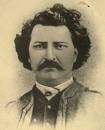
a.) Which category of Canadian Personalities interested you the most? Did you like the "we inspired", "we founded", "we fought", "we built" or "we governed" section the best? Why?The section that interested me the most was " we governed ." It interested me because the people in that group were some of the first leaders of Canada and were some of the people that made big impacts on Canada( not that the others didn't).B)b.) Which personality interested you the most? Why? Find an image of him or her to embed (add to the body of your post) and write, in your own words, a short description of what he or she did and why he or she is your favourite.The personality that interested me the most was Pierre Trudeau. He interested me because I had heard his name before and about how charismatic he was but i have never really learnt that much about him. Joseph Philippe Pierre Yves Elliott Trudeau was born October 18,in Montreal, Quebec 1919 was the 15Th Prime Minister of Canada from April 20, 1968 to June 4, 1979, and from March 3, 1980 to June 30, 1984. Trudeau was the first Canadian Prime Minister born in the 20Th century.Trudeau earned a law degree at the Université de Montréal in 1943; during his studies he was conscripted into the Army, like thousands of other Canadian men, as part of the National Resources Mobilization Act. He joined the Canadian Officers Training Corps and served with other conscripts in Canada, as they were not able for overseas military service until after the Conscription Crisis of 1944. From the late 1960s until the mid-1980s, dominated the Canadian political scene and aroused passionate reactions. "Reason before passion" was his personal motto, Admirers praise the force of Trudeau's intellect They salute his political brilliance in preserving national unity and establishing the Charter of Rights. Trudeau led Canada through some of its most tumultuous times and was often the centre of controversy.
I got most of my information from a book that my father had on Pierre Trudeau
and the rest i got from this site
Some other personalities that i would sugest are John A. McDonald, Samuel de Champlain and Peter Pitseolak.I was matched up with James Naismith, it only took me one clue to find out who it was it was the nickname clue. James Naitsmith and I both spoke english, we both played a lots of sports but the only sportswe have in common are football, swimming and skating, we both belonged to many sports teams however he played other sports than the ones that i play, he earned degrees, he lived in many places and served in the war and he has had honours, streets and a hall of fame named after him, but i have not. 8. Think long and hard about this part and then post an answer to this question on your blog:
e.) One hundred years from now, (in 2109!) imagine that students are learning about Canadian History Makers and they discover you. What will you be remembered for? How were you a Canadian History Maker? You are using your imagination, so think about some things that you would like to accomplish in your life and imagine that you have all the accomplishments of your life to look back on. Write a short profile of yourself, imagining the contributions you have made to the future of Canada.
If i were to write a description of myself in 2109 it would go like this, Russell Joseph Gerard Stuart was born March 18, 1996 to Anita Fauteux and Bruce Stuart an executive assistant to the vice president at Canadian Commercial Cooperation and a director of ministerial and sectoral communications division at National Resources Canada. As a young boy in Ottawa Russell played hockey and baseball and attended Fielding Drive public school before going to brookfield high school and getting a baseball scholarship to university of Ottawa graduating and getting drafted in the 1st round to the Boston Red Sox and becoming the first person to record 800 career home runs without the use of performance enhancing drugs. After retiring in 2045 Russell was inducted into the base ball hall of fame and became the general manager of the Boston Red Sox. Then in 2112 with his two sons at his side Russell died of natural causes he will always be remembered as a honest and genuine person.




